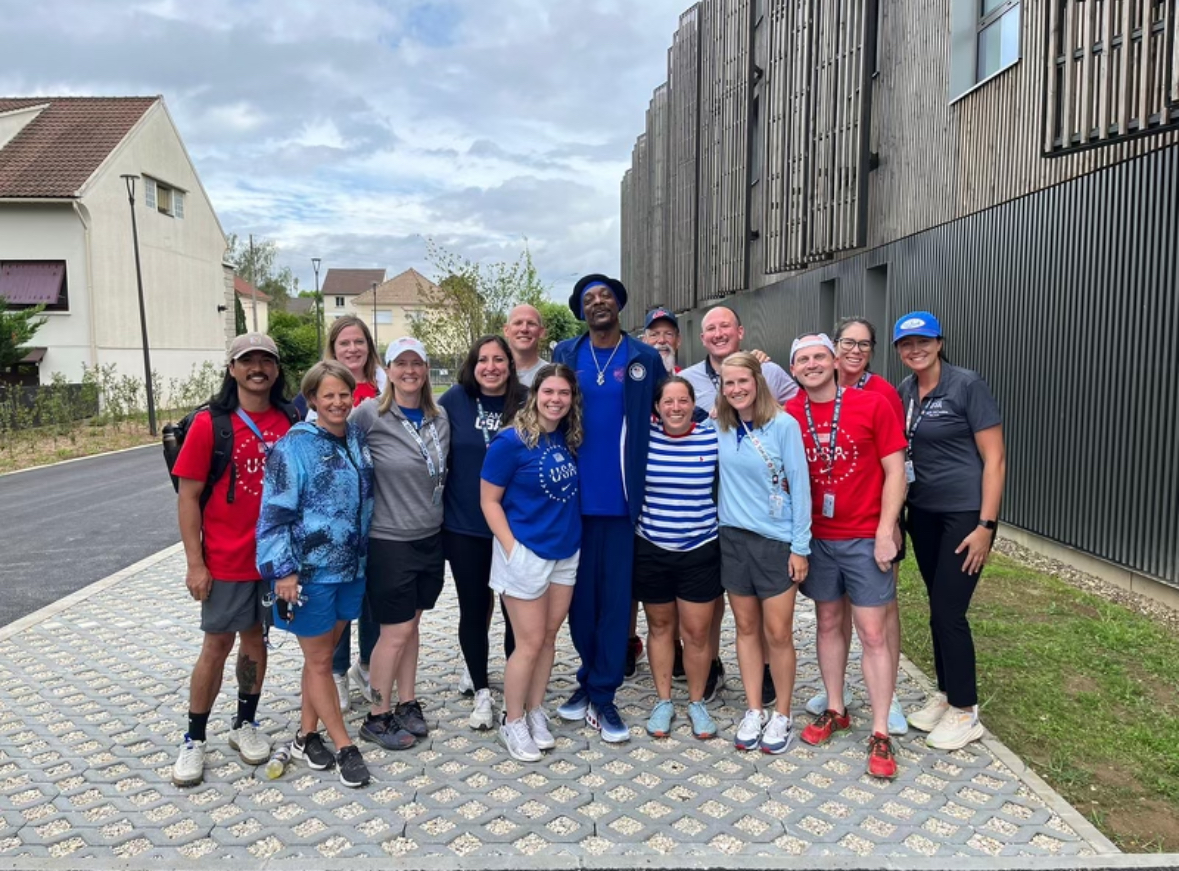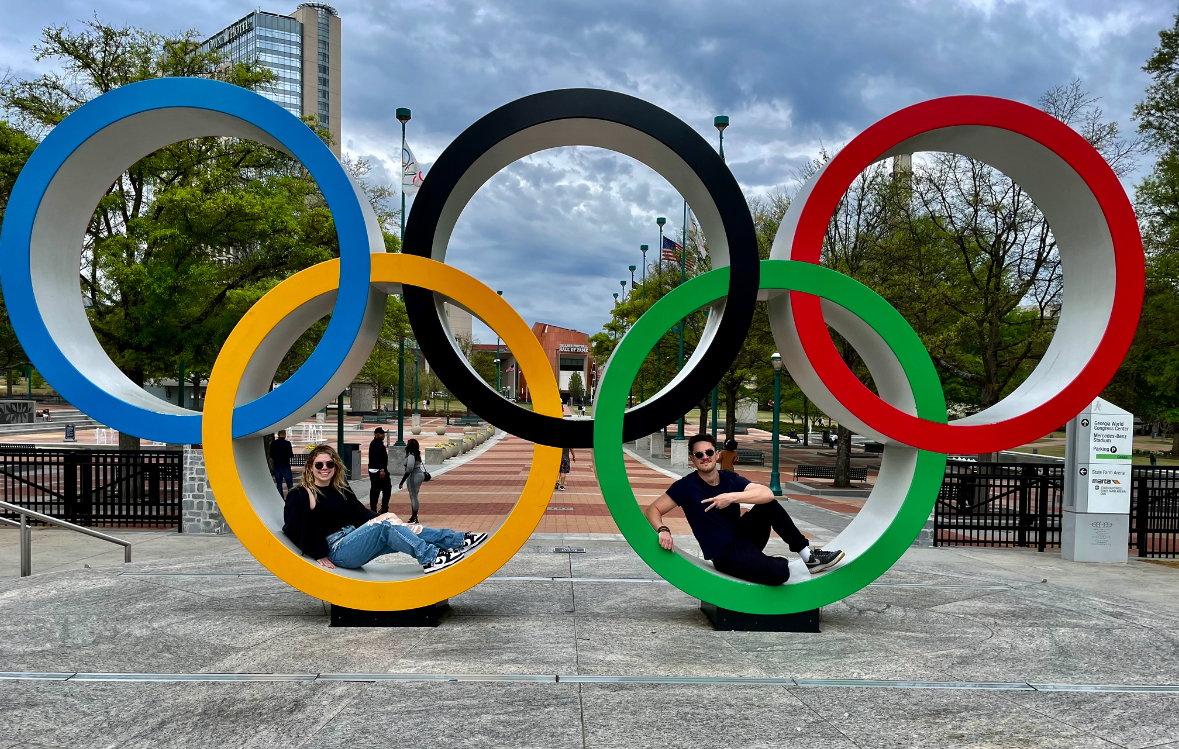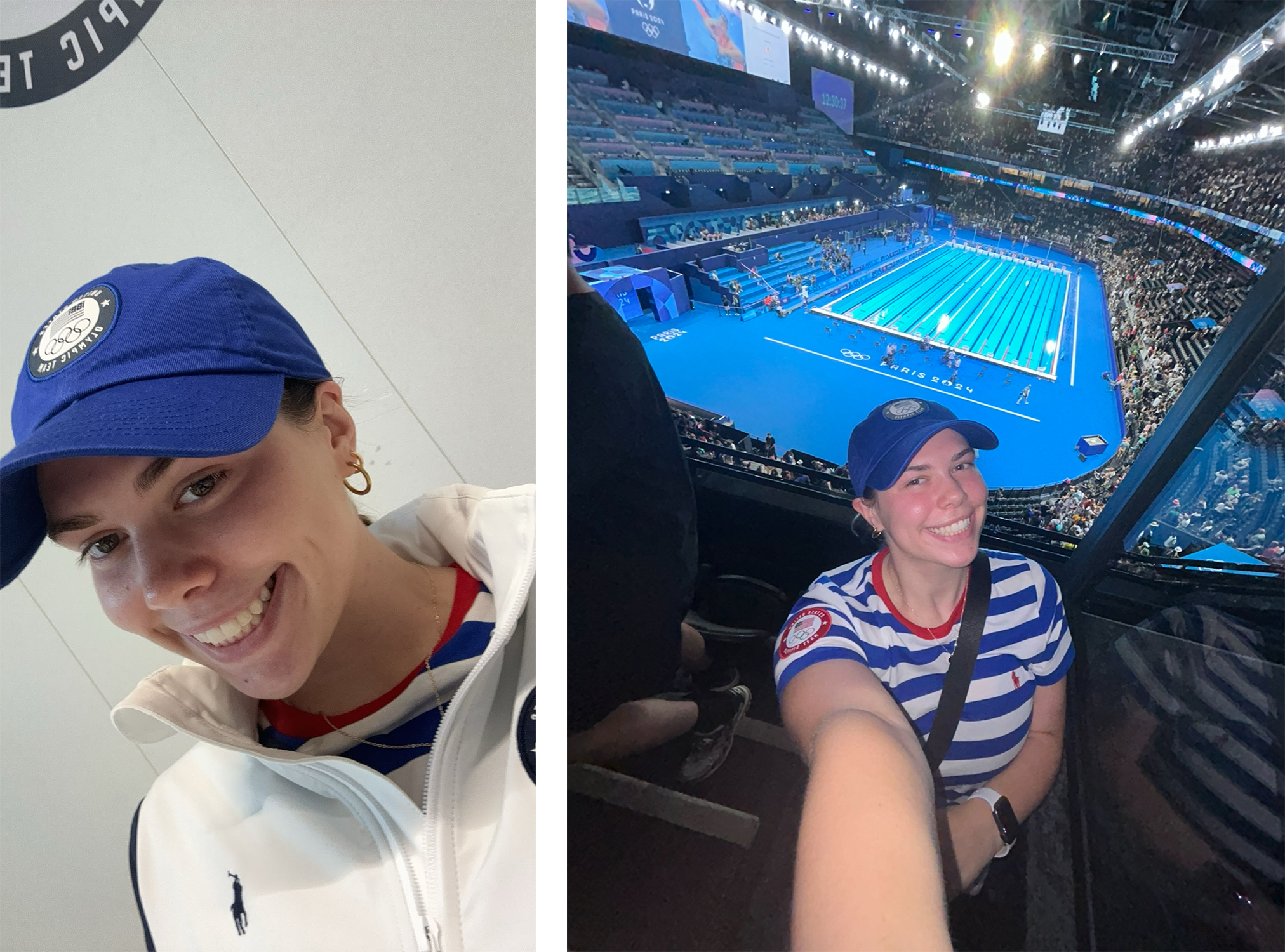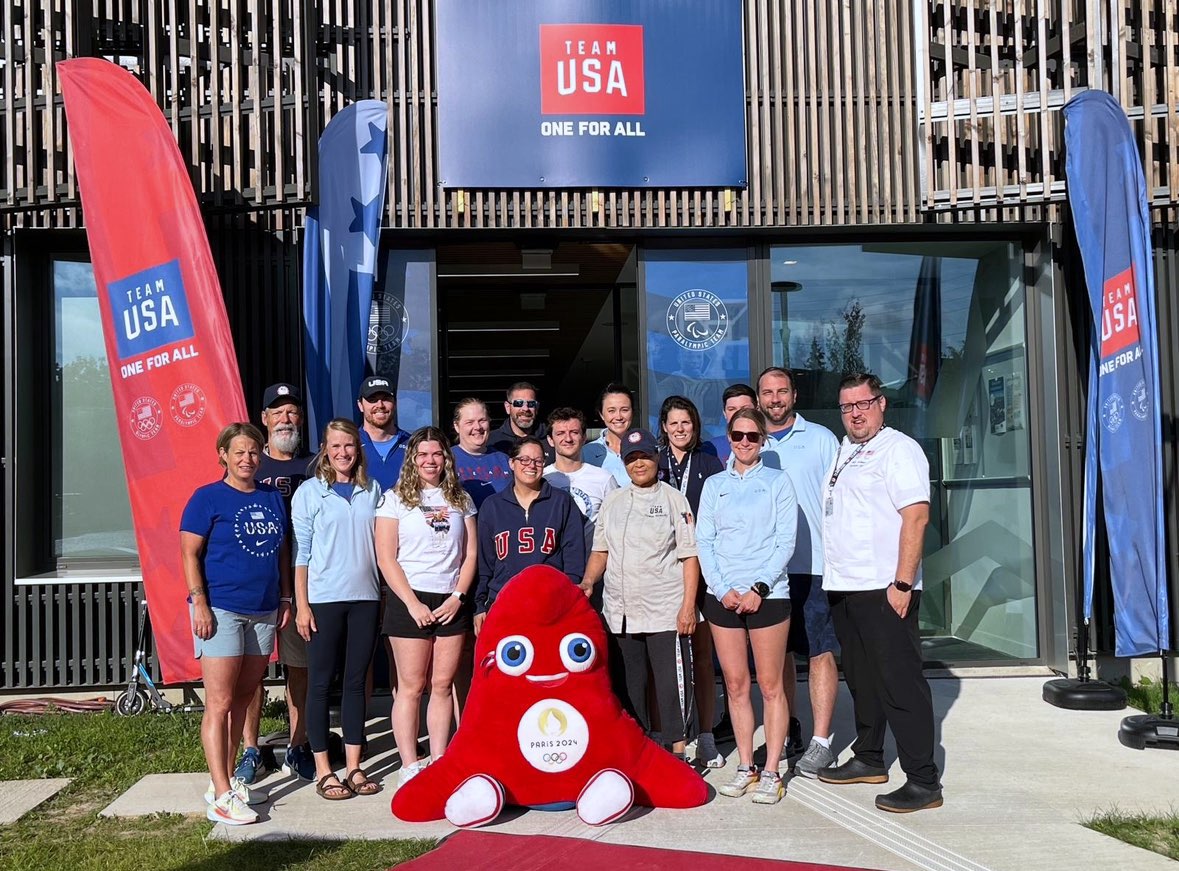
 Back to News
Cool Jobs
Back to News
Cool Jobs
What it's like to work behind the scenes of the Olympics

In August, Emma Clapp (SM ‘24) stood on the track of the High Performance Center, where U.S. athletes train and receive support during the Summer Olympics. She was in Paris, watching rapper and Olympic correspondent Snoop Dogg work out while listening to his own music.
“It felt like a scene straight out of a movie,” Clapp says.
For Clapp, the Olympics were full of surreal moments like this as she witnessed the inner workings of one of the most prominent events in sports. In her first role out of college — games operations coordinator with the United States Olympic and Paralympic Committee (USOPC) — Clapp was part of the team that made these events happen.

Caption: Clapp (left of Snoop Dogg, in the dark blue shirt) and her team pose with Snoop outside the kitchen and dorms in the Paris 2024 Olympic Village.
Growing up sporty
Sports were always a big part of Clapp’s life. Growing up in the small city of Danville, Ill., close to the Indiana border, she was part of a class of only 70 or 80 students.
“So if you were athletic,” she says, “you kind of played all the sports.”
Going into her senior year of high school, Clapp wasn’t sure what she wanted to do for work or where she wanted to go for college. When it came time to apply, she remembered a swim camp that she’d attended as a preteen at the University of Michigan. The enthusiasm of the staff and other swimmers for U-M had stayed with Clapp.
Looking at U-M’s offerings, she came across the Sport Management Program (SM) at the School of Kinesiology and thought: “That might be super cool.”
Navigating the job market
Clapp knew she wanted to be directly involved with sport in some capacity once she graduated.
But by the beginning of her senior year, she noticed many of her classmates were already posting on LinkedIn about the jobs they’d secured, and she wondered: 'Am I behind? Should I have been applying to stuff already?'
Her first instinct was to check for open positions with the USOPC, an organization she’d created a mock pitch for in SM 317: “Career Planning” with teaching professor Kelli Donahue. Fortunately, she stumbled across the job she has now — that of games operations coordinator, responsible for managing athlete registration and supporting the games operations team’s many other logistical and technical operations that make the Olympics possible.
Clapp waited a month to hear back about her application. In the meantime she applied to other jobs but had no success.
“I definitely was in my head,” she says about that time. “Like, ‘Am I going to get a job? Is this going to happen?’”
When it came time for the first-round interview with the committee, Clapp bonded with her interviewer over their shared favorite form of organization: sticky notes. Since the coordinator role requires strong time management and organizational skills, it’s possible that common interests gave her an advantage going into the next stages of the hiring process.
Her roles as U-M swim team manager and development intern with the USA Swimming Foundation also set her apart as a candidate. Since the USA Swimming Foundation is one of the national governing bodies that the USOPC oversees, Clapp came prepared with an understanding of part of the USOPC’s structure and experience managing logistics in a high-pressure sports environment.

Caption: Clapp visited Centennial Olympic Park in Atlanta, where a sculpture of the Olympic Rings commemorates the Atlanta 1996 Summer Olympics, exactly a year before starting her job with the USOPC. Kismet!
Paris as a rite of passage
Being involved in an event as significant as the Olympics was an initiation for Clapp. By the time she started as a coordinator of game operations, there were only six weeks left before the Games, so she jumped right into event coordination.
Two weeks before the Games began, Clapp arrived in Paris and was assigned to the High Performance Center, where her responsibilities included securing accreditations and looking after perimeter security.
At first, Clapp was working 10- or 12-hour days to set up the facility and print access badges. Once the Games began, Clapp settled into a regular 9-5 schedule, working as part of a nine-person team of people from different departments within the USOPC. She even lived in a dormitory attached to the High Performance Center in case any issues came up outside of working hours, like an athlete's badge malfunctioning and keeping them from accessing the facility.
When she got back from Paris, Clapp says: “It was the first time I laid on my couch and I had nothing to do. It felt super weird.”

Preparing for the next events
Now that she’s back in the U.S. and planning the 2026 Winter Olympics in Milan, Clapp’s average work day looks a lot different than it did in Paris. Rather than living and working on-site at an event, she has a hybrid work schedule and most of her tasks take place online.
As one of four coordinators in her department, Clapp is responsible for managing the system athletes use to register for the Games and contacting athletes with instructions to use the system. She also helps with the logistics behind housing and accreditation for the events, among other tasks.
One of her biggest responsibilities these days is building out online forms to collect information from the athletes and set them up for both the Winter Olympics and the 2025 Junior Pan American Games in Paraguay. The data she gathers includes everything from athletes’ shirt and shoe sizes and passport details to social media handles and transportation and accommodation needs.
Looking back on her time at U-M, Clapp says SM group project assignments prepared her well for her current role.
“I'm communicating with a lot of different stakeholders who I don't see on a daily basis,” she says, “and I think those SM projects really helped with knowing how to reach out to people.”
Clapp isn’t sure what her path with the organization will look like but would, ideally, like to grow with the job.
“I know there’s room for growth and for professional development,” she says, “so hopefully I can progress.”

Caption: Clapp and her team outside the entrance to the High Performance Center main office in Paris.
Living the dream
For Clapp, this is very much a dream job.
“The first thing I asked my siblings when I got the job was, ‘Am I cool now that I work with the Olympics?’” she says. “I'm so lucky that I get to be part of Team USA and get to do all this behind-the-scenes stuff as well as get to experience [the events] firsthand.”
Working in games operations has also given Clapp a new appreciation for the Olympics.
“I wish that people knew how much work actually goes in on our end,” she says. “Watching the Olympics, you don’t think about it. But there are so many people behind the scenes doing so many different jobs that you wouldn’t even expect.”
Now, she’s one of those people.